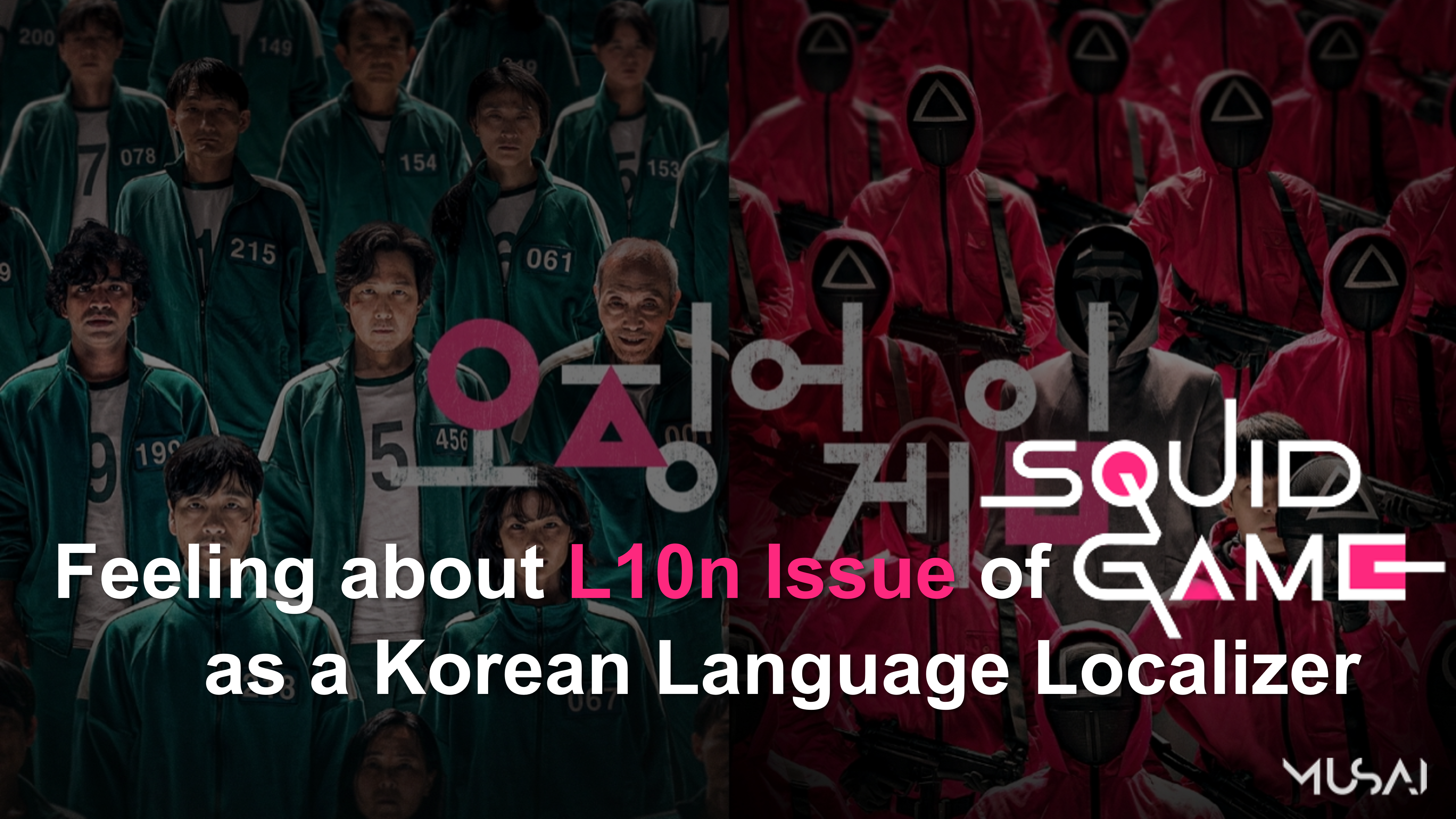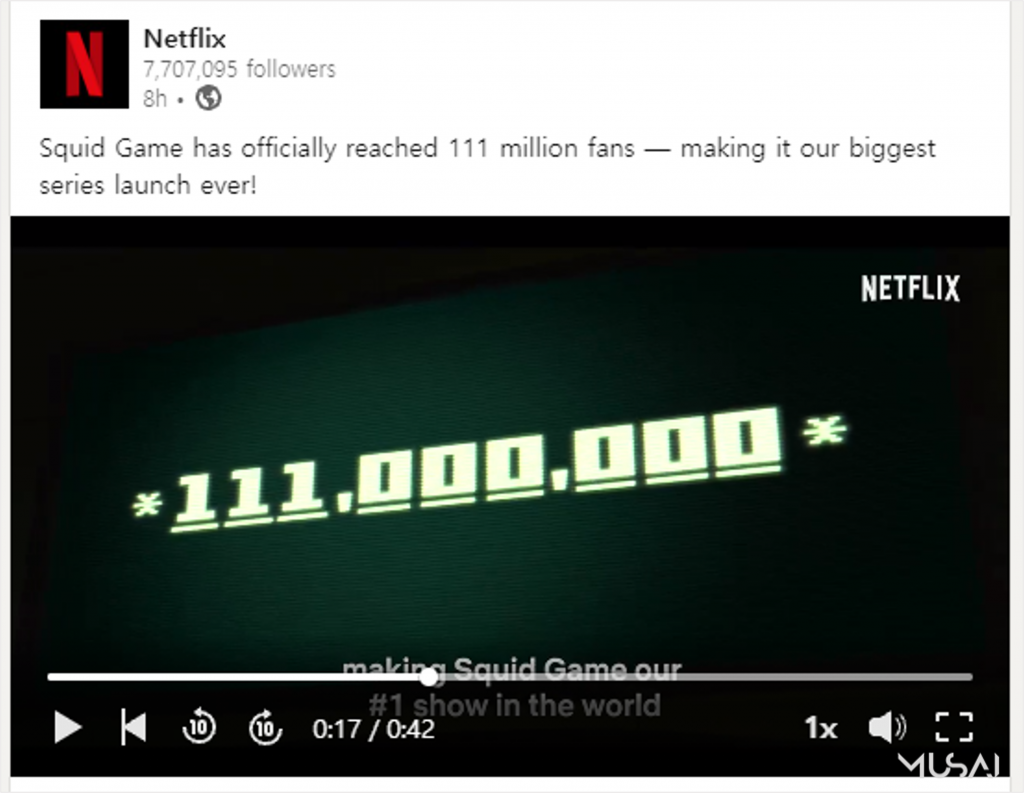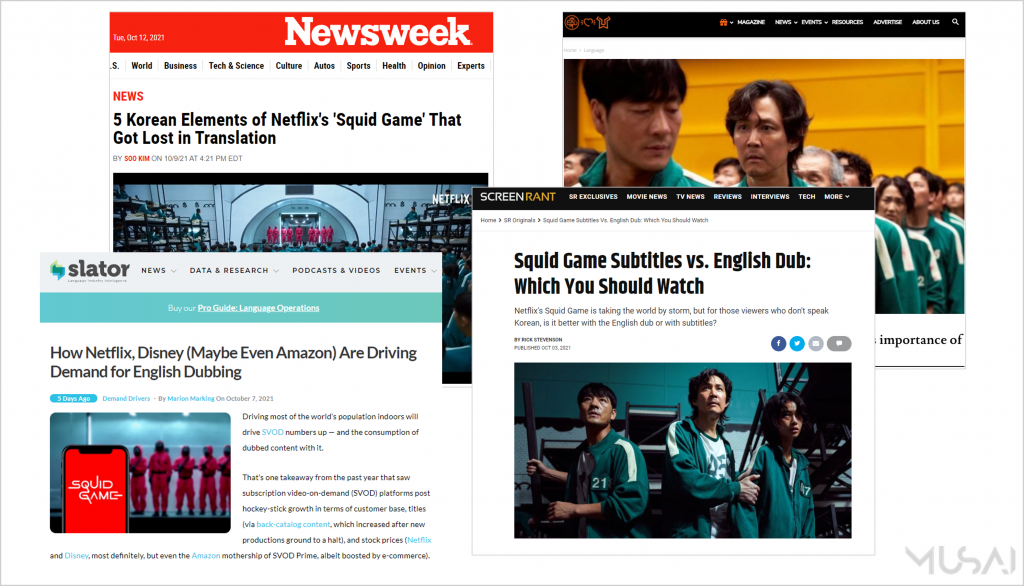[MUSAI] Feeling about Localization Issue of ‘Squid Game’ as a Korean Language Localizer

2021-10-22
October 13th, Netflix officially announced that <Squid Game> had over 100 million viewers. While the series takes the world by storm, the interest in the English dubbing and translation of the show has phenomenally increased over the world.

One TikTok video posted by Youngmi Mayer, a Korean-American comedian, has been a trigger to draw huge attention to the translation of <Squid Game>. In the video, she gave several examples of mistranslation in the English subtitles of <Squid Game>, pointing out that the subtitles had failed to convey the elements of Korean culture and many viewers replied with agreement.
Youngmi Mayer’s Tiktok Video:
@youngmimayer #squidgame translations are sooo wrong here’s a little example
♬ original sound – youngmi
In line with this trigger, numerous media outlets began to talk about the English dubbing and subtitles of <Squid Game> from various perspectives. They include a wide range of topics such as an interesting article giving a tip which one non-Korean speaker should choose between English dubbing and subtitles to fully enjoy <Squid Game>, and a critical article highlighting the importance of having qualified translation amid more and more media in various languages available.

Only with few articles, it didn’t take a long time to feel the worldwide hit of <Squid Game>. Honestly, as a language service provider specializing in the Korean language, it was such a pleasure to see the remarkable success of K-drama and the huge attention to its translation. So, here, we would like to join the worldwide discussion, sharing our opinion regarding this phenomenon from a perspective of a Korean language localizer.
The Korean language will drive the Korean wave
More people fall into the charm of the Korean culture, more people have an interest in the Korean language, and this is very inspiring for the Korean localization ecosystem. Fans of Korean culture will demand faithful translation and LSPs will put more efforts to meet the expectation.
In light of this phenomenon, not only the Korean content but also other non-English content will gradually have more influence on the global media market and the importance of translation will be more highlighted accordingly as <Multilingual> pointed out. (Refer to “Squid Game smashes barriers and records, highlights importance of translation” https://multilingual.com/squid-game-smashes-barriers-and-records-highlights-importance-of-translation/) For that, the quality of English translation which is a pivot language will become more important than ever when working on the globalization of non-English content. Furthermore, it is possibly expected that the localization projects from the non-English languages to the other non-English languages, which means the direct translation without a pivot language, will be gradually increased as well.
Localization instead of translation
Regarding the translation issue of <Squid Game>, most of the media pointed that the reason behind of the quality problem was the lack of understanding of the Korean culture, not the translators’ incompetence. In fact, the interpretation of the media that went one step further was very welcome to the localization industry people, who have always been criticized at the forefront when the issue of translation quality occurred. As we, Musai Studio, has emphasized, good translation comes from good understanding of the culture. It is the most basic rule in the localization industry, for any entertainment including games. A much better translation would have been possible if the various cultural elements mentioned in the media had been provided to the translator at the beginning of the work, right?

Increase of the attention to the Korean localization industry people
A Korean-English translator posted a summary of the issues related to the translation of <Squid Game> on LinkedIn and got lots of comments with gratitude and supports from translators and localization industry people over the world. The blockbuster success of <Squid Game> and its translation issues have people to pay attention to the Korean language, enhance the status of it, and even lead a chance that the localization industry people who work in Korean language stand out.
For a long time, in the localization industry, the Korean language was often treated as a “spare tire”. That is, it was a language that one hesitates to either translate or give up according to economic logic. Now, we hope that the Korean language is appreciated as an important language in terms of economic logic and cultural status, and thus the status of localization people who deal with Korean is also enhanced ultimately.
** Did you enjoy the news of Musai? Please click subscribe and share the story.
BOOST YOUR PLAY! Musai Studio







